Skills That Will Be Relevant in The Future: Individuals, communities, and nations who are better at evolving and adapting, knowing how to build on their strengths, and generating tailored answers to today’s global issues of sustainability, growth, and inclusiveness will have a brighter future. One of the most important methods to accomplish your job successfully and keep up with changing needs in the workplace is to keep your skills up to date.
Your abilities can also help you prepare for new career chances and maintain your job in a tough market. However, you should not believe that your company is solely responsible for your training: it is your obligation to keep current. This is essentially a two-step procedure that begins with an honest assessment of your abilities and ends with any necessary efforts to improve them. New technology discoveries, along with globalization and massive population shifts, are expected to result in significant changes in the skills required for governments, businesses, and individuals to flourish.
The recent significant advancements in Artificial Intelligence (AI), robotics, the widespread use of digital technologies, and the resulting creation and destruction of employment, are putting growing pressure on the role of skill needs forecasting. Simultaneously, the disruptive nature of these shifts makes projecting future skill requirements much more difficult. Skills supply is changing as well, but it takes time to adjust to new skill requirements.
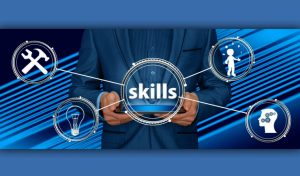
Recommended: Most profitable skills to learn in 2024
Top 10 Skills That Will Be Relevant In The Future
1. Sense-making: The capacity to identify the underlying meaning or relevance of what is being presented is known as sensemaking. As smart robots take over repetitive, regular manufacturing and service tasks, there will be greater demand for the abilities that machines lack. These are higher-order cognitive abilities that can’t be taught.
These abilities are referred to as sense-making abilities since they assist us in generating unique insights that are crucial to decision-making. Many regarded the loss of chess grandmaster Gary Kasparov by IBM’s supercomputer as proof of the supercomputer’s superior thinking ability. The supercomputer, on the other hand, had prevailed via raw numerical strength (the ability to assess millions of potential actions per second), rather than through the application of the kind of human intelligence that helps us in our daily lives.
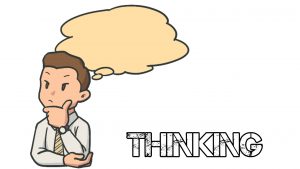
A computer may be able to beat a human at chess or Jeopardy due to sheer processing capacity, but it will have no idea if you’re talking about swimming, financial portfolios, or billiards if you ask it to play pool. As we re-negotiate the human and machine division of labor in the coming decade, critical thinking or sense-making will undoubtedly emerge as a talent that employees will increasingly need to capitalize on.
2. Social intelligence: The capacity to make a deep and direct connection with people, to feel and create emotions and desired exchanges. While early prototypes of “social” and “emotional” robots may be seen in many research laboratories today, the range of social abilities and emotions that they can express is quite restricted.

Feeling is equally as intricate as, if not more so than, sense-making and the emotional and social robots we’re inventing aren’t sense-making machines. Employees that are socially knowledgeable can swiftly evaluate the emotions of others around them and adjust their words, tone, and gestures as needed.
This has always been a crucial ability for employees who need to cooperate and form trusting connections, but it is becoming increasingly critical as we are asked to deal with greater groups of people in a variety of contexts. Our emotional intelligence and social IQ, which have evolved over millennia of group existence, will continue to be important advantages that offer humans a competitive advantage over robots.
Also see: Qualities of a successful lawyer
3. Innovative and adaptable thinking: The ability to think outside the box and come up with answers and reactions that aren’t formulaic or rule-based. Middle-skill white-collar and blue-collar employment possibilities are dwindling, owing to a mix of regular labor automation and global offshore.
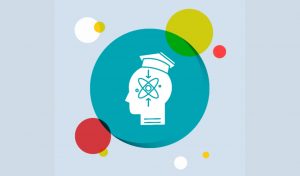
Job possibilities, on the other hand, are becoming more concentrated in both high-skill, high-wage professional, technical, and management jobs, as well as low-skill, low-wage occupations like food service and personal care. Abstract activities are common in high-skill jobs, while physical tasks are common in low-skill jobs.
Both of these types of work need what Autor refers to as “situational flexibility,” or the capacity to respond to unusual and unexpected conditions in the present. Both original thinking and adaptation are required for tasks as diverse as making a persuasive legal case and producing a unique meal out of predetermined elements. In the coming decade, these abilities will be in high demand, especially as automation and offshore increase.
Also see: Signs that shows you are an intelligent person
4. Cross-cultural competency: The capacity to operate in a wide range of cultural settings In a completely globalized society, a worker’s skill set may see them posted in a variety of locations, and they must be prepared to operate in any situation they find themselves in. This demands specific talents, such as linguistic skills, as well as the ability to adapt to changing circumstances and the ability to notice and respond to new events.

Cross-cultural competency will become a necessary talent for all workers, not just those that must function in a variety of geographical settings. Diverse workforces are increasingly seen as a source of creativity. The combination of varied ages, abilities, disciplines, and working and thinking styles that members bring to the table, according to research, is what makes a group genuinely brilliant and inventive. Scott E. Page, professor and head of the University of Michigan’s Center for the Study of Complex Systems, has shown that groups with a variety of opinions and skill levels outperform like-minded specialists.
“Progress is as much a function of our group diversity as it is of our individual IQ scores,” he says. Over the next decade, diversity will thus become a key skill for businesses. Employees in these varied teams must be able to recognize and convey points of connection (shared objectives, priorities, and values) that transcend their differences and allow them to form relationships and operate effectively together.
Recommended: How to become a successful entrepreneur
5. Computational thinking: The capacity to interpret data-based reasoning and transform large volumes of data into abstract notions. As the quantity of data, we have at our disposal grows at an exponential rate, many more jobs will require computational thinking abilities to make sense of it. We shall be able to modify our settings and improve our relationships by using beginner-friendly programming languages and tools that teach the foundations of programming virtual and physical worlds.
As simulations grow more common in discussions and decision-making, they will become fundamental competence. HR departments that presently reward applicants who are comfortable with basic software, such as the Microsoft Office suite, will change their expectations to include statistical analysis and mathematical reasoning abilities on resumes. Workers will need to be aware of the limitations of computational thinking in addition to gaining computational thinking abilities.
This necessitates an appreciation for the fact that models are only as good as the data they are fed—even the finest models are simply approximations of reality, not reality itself. Second, employees must maintain their ability to operate in the absence of data and avoid being paralyzed when each system lacks an algorithm to guide decision-making.
Also see: The major Qualities of a good teacher discussed
6. Literacy in new media: The capacity to critically evaluate and generate material that makes use of new media formats, as well as to use these mediums to persuade others. In the coming decade, the growth in user-generated media, such as videos, blogs, and podcasts, that today dominate our social lives, will be felt completely in the workplace. Expectations of worker abilities to develop material using these new formats will skyrocket as communication tools that move away from the static slide approach of applications like PowerPoint become more widespread.
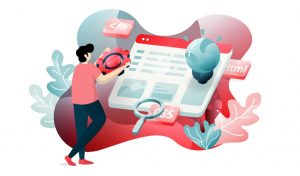
The future generation of employees will need to become fluent in video formats, able to critically “read” and evaluate them in the same manner that they do now with a paper or presentation. They must also be confident in their ability to create and display their own graphic data.
Workers will need increasingly advanced abilities to use these technologies to engage and convince their audiences as immersive and visually engaging information presentation becomes the standard.
7. Transdisciplinary: The capacity to read and comprehend concepts from a variety of fields. Many of today’s global issues are just too complicated for a single particular area to tackle (think global warming or overpopulation). Transdisciplinary solutions are needed to address these diverse issues. While specialization was fostered during the twentieth century, transdisciplinary techniques will take center stage in the twenty-first century.
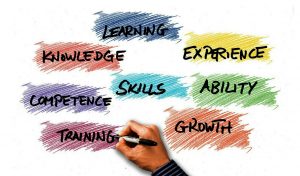
This may already be seen in the birth of new fields of study such as nanotechnology, which combines molecular biology, biochemistry, protein chemistry, and other disciplines. This transition has significant consequences for the skill set that knowledge workers will need to bring to work. The ideal worker for the next decade will be “T-shaped,” with a strong grasp of at least one area and the ability to communicate in a variety of disciplines’ jargon.
This necessitates a feeling of wonder and a readiness to continue learning long after formal schooling has ended. Workers will need to cultivate this T-shaped trait even more as their lifespans lengthen, allowing them to pursue several occupations and get exposure to a wider range of businesses and specializations.
Recommended: How to learn a new skill quickly and effectively
8. Design mindset: The capacity to see and construct activities and work procedures in order to achieve desired results. The digital world’s sensors, communication tools, and processing capacity will open up new possibilities for taking a design approach to our job. We will be able to design our settings to support the results that are most important to us.
Neuroscience research is revealing how our physical settings have a significant impact on our cognition. “Alter the environment, change the brain, change the behavior,” says Fred Gage, a neurobiologist who researches and creates habitats for neurogenesis. In the future, employees will need to be able to recognize the various styles of thinking required by various activities, as well as make changes to their work environments to increase their ability to execute these tasks.
9. Management of cognitive burden: The capacity to sort and prioritize information based on its significance, as well as the knowledge of how to use a number of tools and procedures to improve cognitive performance. The issue of cognitive overload is brought to the fore in a world rich in information streams in numerous formats and via multiple devices.
Only by learning to efficiently filter and focus on what is important will organizations and workers be able to transform the tremendous influx of data into an advantage. The next generation of employees will have to come up with their own strategies for dealing with cognitive overload. Consider social filtering as an example. Higher-quality or more relevant material rises above the “noise” by being ranked, tagged, or given more metadata.
Also see: How long does it take to learn the piano
10. Virtual collaboration: As part of a virtual team, the capacity to work successfully, drive engagement and display presence. Despite physical separation, connective technologies make it easier than ever to collaborate, communicate ideas and be productive. However, working in a virtual world necessitates the acquisition of new skills. Individuals who lead virtual teams must develop ways for engaging and motivating a dispersed group.
We’re seeing that gaming approaches are incredibly effective at engaging massive virtual communities. Including traditional gaming features like rapid feedback, clear objectives, and a staged set of challenges in collaborative platforms can greatly boost engagement and motivation. Virtual team members must also learn to discover locations that promote productivity and well-being. Lack of access to a central, social work can lead to isolation, which can be alleviated by a community that provides “ambient sociability.”
Recommended: Boarding vs Day School, which is better? Debate
Conclusion
With technology progressing and the world evolving at a breakneck pace, it’s only natural that the skill sets required for future professions evolve as well. Indeed, as the digital world expands, soft skills such as communication, problem-solving, teamwork, and empathy are becoming just as crucial as (if not more so than) technical knowledge. Workplace expectations are evolving as automation, digitization, and robotization grow increasingly prevalent in businesses.

Edeh Samuel Chukwuemeka, ACMC, is a lawyer and a certified mediator/conciliator in Nigeria. He is also a developer with knowledge in various programming languages. Samuel is determined to leverage his skills in technology, SEO, and legal practice to revolutionize the legal profession worldwide by creating web and mobile applications that simplify legal research. Sam is also passionate about educating and providing valuable information to people.